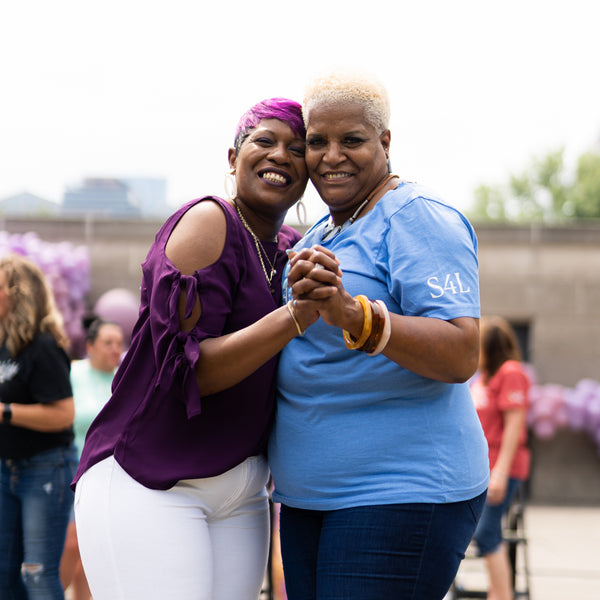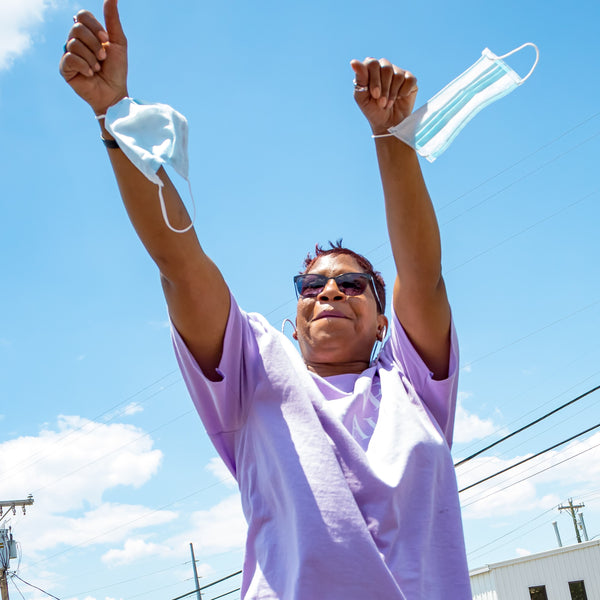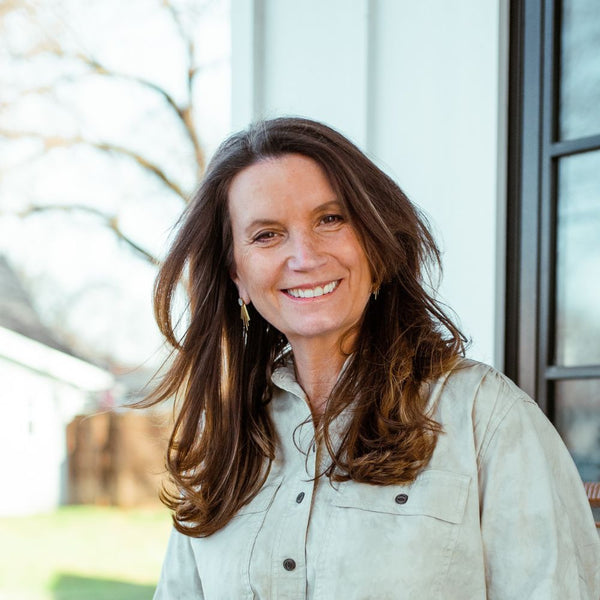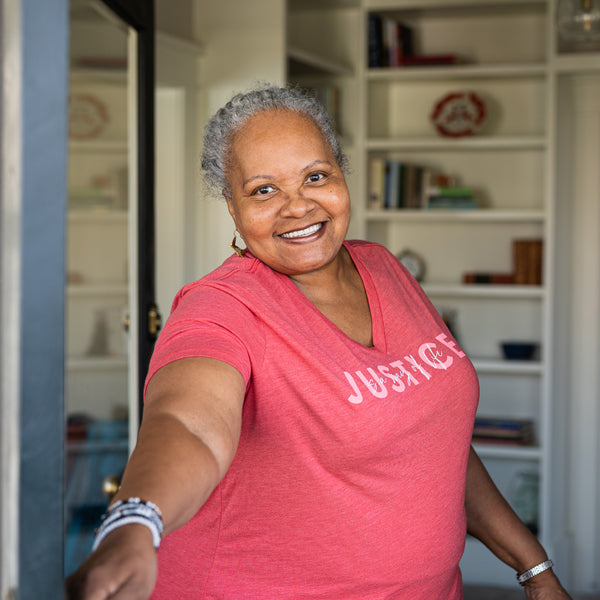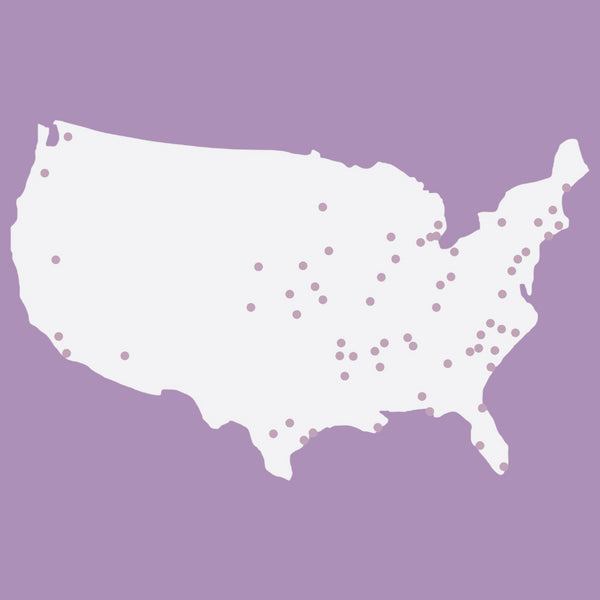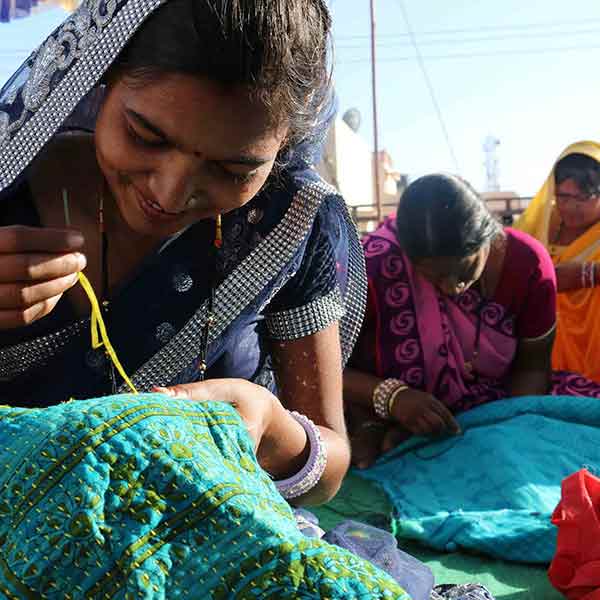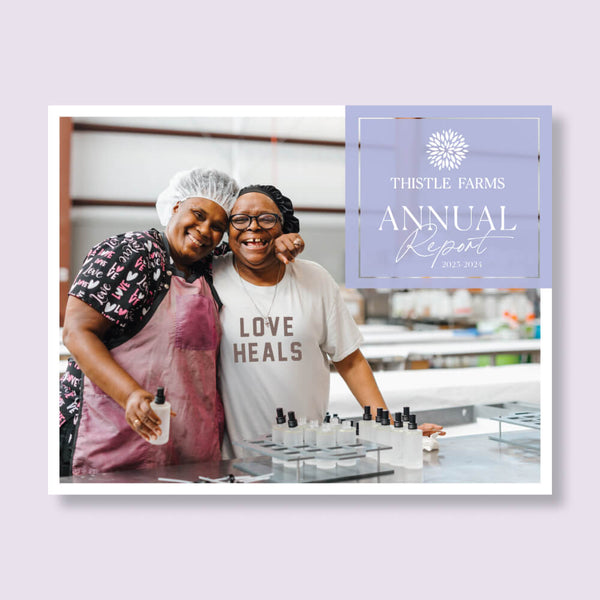Second Chance Employment at Thistle Farms
April is Second Chance Month, a time to recognize the importance of redemption and the impact of fair opportunities. When people are given a chance to rebuild, families are strengthened, communities are safer, and cycles of harm are broken.
Yet, for the millions of Americans with criminal records there are barriers to employment, housing, and basic needs hat persist long after they’ve served their time. This is true for the women Thistle Farms serves as well.
-
The majority of women in the U.S. criminal legal system have experienced abuse, exploitation, and trafficking. Nearly 86% of incarcerated women have experienced sexual violence, and 77% have experienced partner violence before entering the justice system. [i]
-
Survivors of trafficking often face criminal records that limit their ability to rebuild their lives. Many survivors accumulate charges for prostitution, drug possession, and other offenses directly tied to their exploitation, making reentry difficult. A study found that 91% of trafficking survivors had been arrested at least once, and 42% had more than 10 arrests. [ii]
-
Women with criminal records face severe employment and housing discrimination. Nearly 60% of formerly incarcerated women remain unemployed a year after release due to discrimination and lack of opportunities. [iii]
-
Access to stable housing is one of the biggest challenges after incarceration. Formerly incarcerated women face a 13 times higher risk of homelessness compared to the general population. [iv]
After addressing the immediate needs of securing safe housing and beginning the healing process through therapy and recovery in the Thistle Farms residential program, obstacles to success can still present themselves in significant and discouraging ways.
Our social enterprise was born in 2001 from the recognition that the two year residential program was life-changing, but we needed it to be life-sustaining. Women were completing the program encountered significate obstacles to maintaining their recovery, safety, and the life they were beginning to rebuild because they faced job and housing rejections, which creates a cycle of instability and insecurity that is so difficult to break.
For those living in or visiting Nashville, The Cafe and Shop at Thistle Farms are often the first introduction one has to our mission apart from our products. That's because these two arms of our social enterprise welcome not just current residents and graduates of the program as employees, but also those who identify as being in recovery or as survivors from other community organizations.
That means that every time you choose to have lunch at The Cafe at Thistle Farms, or purchase a candle from us as opposed to a large chain store, you are supporting meaningful employment for survivors. Those choices in FY25 alone helped us to:
-
92,030 hours of employment for 49 residents and current graduates
-
Serve 54,840 meals in The Cafe
Those numbers tell stories of transformation and second chances that were previously seen as being out of reach by the women of our program and the men who come to us from community partners like Dismas House, who support our work at The Cafe and more.

"There's a lot more to healing than just getting clean, but no matter how much work you do to turn your life around, your record can derail all of that. I'd get denied all the time - when I went to get housing, when I'd apply for a job delivering food, and even getting food stamps - all because the pull your record. Thanks to an expungement clinic, I was able to have nine charges and all my court fees and jail fines waived. This helped me keep my license, my vehicle, my job, and my livelihood. That's just as important a tool as an in my toolkit to help me maintain both my recovery and this life I love so much today."
Diana, Warehouse Manager and 2023 Graduate

"Before I came to Thistle Farms, I was already in trouble with a case pending. So while I was in the program, I was sentenced to 14 years. That was my third trip to prison, but it was so different from the other two because I wasn't alone this time. Thistle Farms wrote and called and visited me. I ended up serving 3 years and one day before I made parole. I was shocked to make parole my first time, but I think the board saw something different - I was able to advocate for myself, tell them how good this program was, and they knew I would have somewhere to go and could work. I was so grateful to be able to have a job without having my background stand in the way. That gratitude kept me showing up on time, staying late, and showing up early. I started out pouring candles, worked hard, and kept getting promoted until I became Director of Body & Home."
Ty, Director of Body & Home and 2015 Graduate
The healing at Thistle Farms isn’t exclusive to women. Men who come to our community work alongside the women, like Jesse and Danny from Dismas House and are making an impact at Thistle Farms as members of the Café Team. Jesse's been a part of the team for three years and as saved enough money to get his license, buy a car, and is now living out his dream of being the father he's always wanted to be. Danny was recently honored with the Cardinal Award, Thistle Farms' employee recognition for his dedication and heart.

Beyond their personal successes, both men play a vital role in creating safe, respectful places for the women of the program, supporting their healing as they walk their own re-entry journeys. Read more about their stories, thanks to our friends at Dismas House.
Meet the Resident: Danny - Dismas
Meet Jesse: The Journey of a Father - Dismas
Thistle Farms believes that love is the most powerful force for change in the world. We have worked for nearly 30 years to create a world where what has happened to someone in the past doesn’t determine their future. We hope you'll join us in championing second chances this month and every other by supporting the work we do.
[i] Lederer & Wetzel (2014), "The Health Consequences of Human Trafficking," Annals of Health Law.
[ii] National Survivor Network (2016), "Collateral Consequences of Criminal Records for Human Trafficking Survivors."
[iii] Prison Policy Initiative (2018), "Out of Prison & Out of Work."
[iv] Prison Policy Initiative (2022), "Nowhere to Go: Homelessness Among Formerly Incarcerated People."
